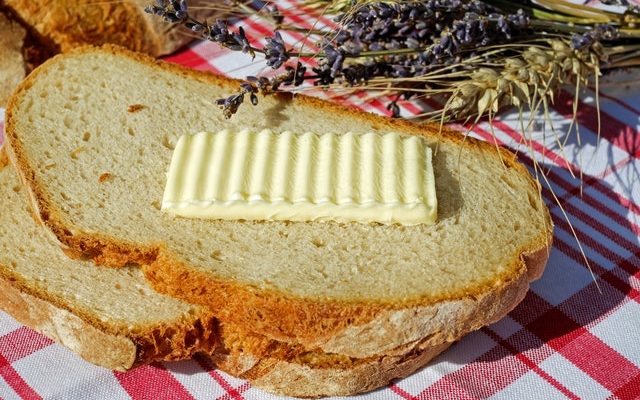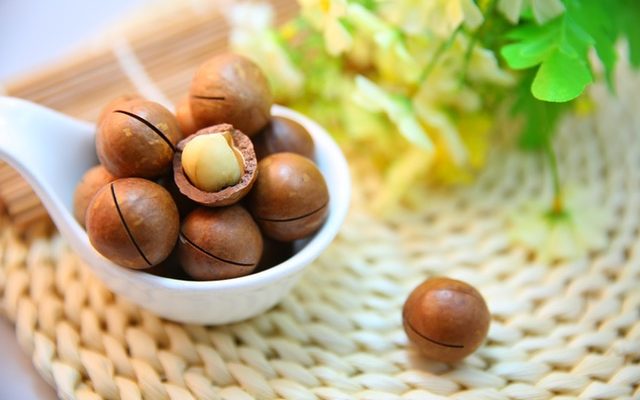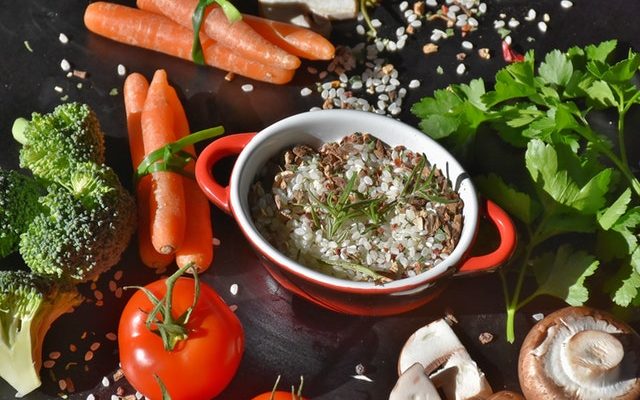5 Health Benefits of Grass-Fed Butter

Table of Contents
Butter is one of the most common food items you can find in any kitchen. It is a staple ingredient for both baking and cooking.
You can also simply spread it on your bread, bagel, and other pastries, so you end up eating something more flavorful, yummy and truly scrumptious.
After being maligned for a number of years, butter is now considered a healthy addition to a well-balanced diet.
In fact, you can add it now to your all-time favorite drink: coffee.
People who are on a ketogenic diet love adding grass-fed butter to coffee. By doing so, they get a lot of health benefits that supplement the ones they acquire from their diet.
However, not all kinds and brands of butter are created the same, and some are healthier than others. Grass-fed butter, for instance, is better than regular butter since the latter contains large amounts of saturated fats.
Many brands of margarine, traditionally considered an alternative to butter, are high in trans fat, synthetic vitamins, artificial colors, and other additives that are unhealthy for your body as well.
Why is Grass-Fed Butter Better?
Grass-fed butter or pasture butter is made from milk from cows that graze on grass. Regular butter, in contrast, is made from milk from cows that eat feed like corn and soy grains.
Generally, when dairy cows eat grains, they tend to be prone to sickness and malnourishment. As a result, the butter produced from their milk has fewer nutrients and contains traces of hormones and antibiotics used to prevent cows from getting sick.
Aside from simply being a healthier choice, grass-fed butter offers more nutritional benefits which are great for your body that include:
Higher levels of omega-3
Omega-3 fatty acids, which include DHA and EPA, are integral elements of cell membranes in the human body. They are also building blocks for various necessary hormones.
These healthy fatty acids play several important roles in keeping you healthy such as:
- Reducing and controlling inflammatory conditions including arthritis and eczema
- Supporting brain function
- Lowering high triglyceride levels
- Protecting your heart from cardiovascular diseases
Grass-fed butter is a good source of omega-3 fatty acids. They contain more of this healthy substance since green plants on land make omega-3 fatty acids.
When cows eat grass, they ingest these healthy fatty acids. The omega-3 fatty acids then show up in the milk and butter they produce.
Conjugated linoleic acid or CLA
CLA is a specific type of fatty acid found in dairy and beef. Various studies show that CLA helps promote weight loss since it improves body composition. It works by reducing body fat tissue and building muscle tissue.
Other research shows that this fatty acid also helps boost immunity. It is a substance also used as an anti-cancer agent.
The human body can’t produce CLA naturally. You have to get it from food. Grass-fed dairy product sources contain more CLA than grain-fed or regular dairy sources.
High amounts of butyrate
Butyric acid is a short chain fatty acid which is one of the chief sources of energy for intestinal cells. They play an important role in keeping colon cells healthy and protecting your body against inflammatory bowel diseases or IBD.
Butyrate also reduces inflammation and can protect against cancer by impeding the growth of cancer cells. In addition, sufficient levels of butyric acid can help your body fight against colitis and Chron’s disease.
Butyrate is also a metabolism-boosting fatty acid. It has been proven effective in improving insulin sensitivity and increasing the body’s fat burning and mitochondrial activity. It is a nutrient you will definitely need if you are trying to lose weight and want a leaner physique.
Vitamin K2
There are 2 types of vitamin K: K1 or phylloquinone and K2 or menaquinone.
Vitamin K2 helps prevent the calcification of arteries. A deficiency in this type of vitamin will cause calcium to leach out of your bone and bring about osteoporosis. Calcium will also precipitate in the arteries which can cause atherosclerosis.
Because vitamin K2 offers more protection against cardiovascular diseases, many multivitamin brands now include this nutrient. Grass-fed butter is also rich in vitamin K2 and, as such, should be included in your daily diet.
Nutrients that help protect your vision and eye health
Grass-fed butter is characterized by its rich, golden-yellow color which is caused by the high levels of beta-carotene content from the cow’s diet.
Beta-carotene helps your body produce vitamin A, a nutrient that supports the vision. Beta-carotene also improves bone health and supports immune system function.
Grass-fed butter also helps your body increase its intake and absorption of lutein – a nutrient that protects your eyes by filtering blue light and UV.
Lastly, grass-fed butter is a rich source of retinol, a fat-soluble form of the vitamin. Retinol is crucial for maintaining eye health, healthy neurological function, and immune coordination.
With all the health benefits grass-fed butter offers, it is high time you choose this product instead of regular butter, and start including it more in your cooking, baking, and daily meals or snacks.
About The Author:
Dave Asprey is the creator of the widely popular Bulletproof Coffee, host of the #1 health podcast, Bulletproof Radio, and author of the New York Times bestselling book, “The Bulletproof Diet.” Through his work, the Silicon Valley investor and technology entrepreneur provides information, techniques and keys to taking control of and improving your biochemistry, your body and your mind so they work in unison, helping you execute at levels far beyond what you’d expect, without burning out, getting sick, or allowing stress to control your decisions.










